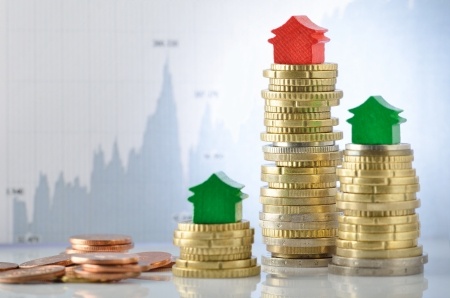
For the second time in two months, the Federal Reserve decided to raise the nation’s interest rates earlier this week. Although Wednesday’s rates only reflect an increase of a quarter of a percentage point, the surge represents one of only three rate hikes since the Great Recession—and with the government currently favoring two more increases this year, consumers are certain to feel the effects. Here’s how the latest interest rate hike could impact you.
- Credit card interest will rise: Unless you own a fixed-rate credit card, expect your credit card interest to shift with the current rate hikes. This means that a quarter-point rate hike will raise your credit card interest by the same amount. The key to avoiding paying high credit card interest is by paying off your credit cards as early as possible.
- Housing could get more expensive: Although mortgage rates do not directly reflect the Federal Reserve’s actions, housing could get more expensive due to the Fed’s high optimism about today’s economy. With higher optimism, mortgage rates tend to move upward. This does not, however, mean potential homebuyers should remove themselves from the housing market. In fact, with the government hinting at two more rate hikes this year, it could be a great time to buy the home you’ve been considering and lock in that rate!
- Your home equity line of credit will increase: Just like your credit card, a home equity line of credit will rise and fall based on the actions of the government. This is because these borrowed funds are bound directly to the prime rate, which is significantly influenced by the government’s set Federal Funds Rate. If you’re worried the variable rate on your home equity line of credit is subject to a serious increase, then consider calling your local lender to discuss switching to a fixed rate.
- Savings won’t increase by much: Unfortunately, the interest rate hike does not affect the interest on your bank savings. In fact, those rates are determined by competitive factors within the economy, like how important it is for the bank to start bringing in more deposits (aka more money for the bank to hold). With high competition in today’s market, banks are therefore not looking to raise their interest rates—but that does not mean banks are offering no interest on savings. Consider shopping around to get the highest rate.
- Student loans could get a little pricier: All private student loans with variable interest rates are subject to a rate increase because they depend on the current prime rate, similar to your home equity line of credit. If you have a Graduate Plus Loan, Parent Plus, or Stafford Loan from the federal government, then your interest rate will not change today. These individual rates are set each July, so students could see a rise this summer.
- Mortgage lenders may relax their borrowing standards: With higher mortgage rates, lenders will have a bigger cushion for risk. This means they could relax their borrowing standards to allow more potential homebuyers to receive a home loan this year. This could be great for the housing industry, as more homebuyers enter the market and purchase loans increase throughout the country.
Overall, the key to coping with these rate hike effects is by being proactive in the housing market. Interest rates are only expected to increase, so it’s important to discuss your mortgage options with a lender and lock in that rate today. For more information about the latest interest rate hike, or to learn more about home financing, contact one of our mortgage specialists today.


